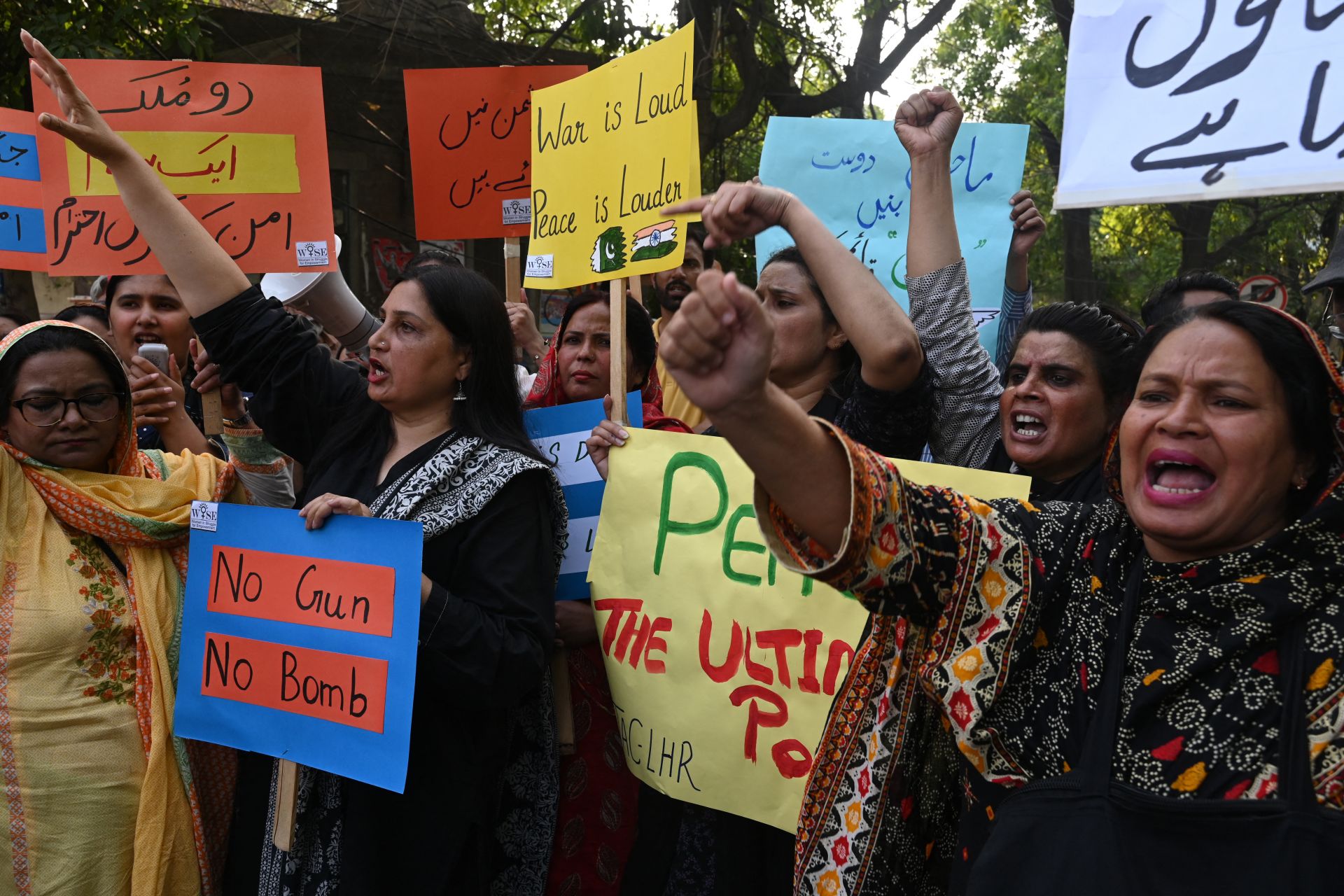- Home
- Middle East
- Indian PM Vows to Stop Waters Key to Rival Pakistan

Members of civil society take part in a peace rally in Lahore on May 6, 2025. Pakistan conducted a second missile test and India ordered civil defence drills in an escalating stand-off over contested Kashmir that the UN said on May 5 has brought the two nations to the brink of war. ©Arif Ali / AFP
Prime Minister Narendra Modi said Tuesday that water from India that once flowed across borders will be stopped, days after suspending a key water treaty with archrival Pakistan.
"India's water used to go outside; now it will flow for India," Modi said in a speech in New Delhi.
"India's water will be stopped for India's interests, and it will be utilized for India."
Pakistan has warned that tampering with its rivers would be considered "an act of war."
Modi did not mention Islamabad specifically, but his speech comes after New Delhi suspended its part of the 65-year-old Indus Waters Treaty, which governs water critical to parched Pakistan for consumption and agriculture.
New Delhi has blamed Islamabad for backing a deadly attack on tourists on the Indian side of contested Kashmir last month, sparking a series of heated threats and diplomatic tit-for-tat measures.
Pakistan rejects the accusations, and the two sides have exchanged nightly gunfire since April 24 along the de facto border in Kashmir, the militarized Line of Control, according to the Indian army.
United Nations chief Antonio Guterres on Monday said relations between Pakistan and India had reached a "boiling point," warning that "now is the time for maximum restraint and stepping back from the brink" of war.
Islamabad on Tuesday accused India of altering the flow of the Chenab River, one of three rivers placed under Pakistan's control according to the now suspended treaty.
"We have witnessed changes in the river (Chenab) that are not natural at all," Kazim Pirzada, irrigation minister for Pakistan's Punjab province, told AFP.
Punjab, bordering India and home to nearly half of Pakistan's 240 million citizens, is the country's agricultural heartland, and "the majority impact will be felt in areas that have fewer alternate water routes," Pirzada warned.
"One day the river had normal inflow and the next day it was greatly reduced," Pirzada added.
In Pakistan-administered Kashmir, large quantities of water from India were reportedly released on April 26, according to the Jinnah Institute, a think tank led by a former Pakistani climate change minister.
"This is being done so that we don't get to utilize the water," Pirzada added.
The Indus River is one of the longest in Asia, cutting through ultra-sensitive demarcation lines between India and Pakistan in contested Muslim-majority Kashmir -- a Himalayan territory both countries claim in full.
Hindu-nationalist Modi had already threatened to use water as a weapon in 2016 after an attack in Indian-run Kashmir.
"Blood and water cannot flow together," he said at the time.
But India also is a downstream state of China -- which controls the Tibetan headwaters of the Brahmaputra, the vast river key to India's northeast, and which then flows down through Bangladesh.
AFP
Comments